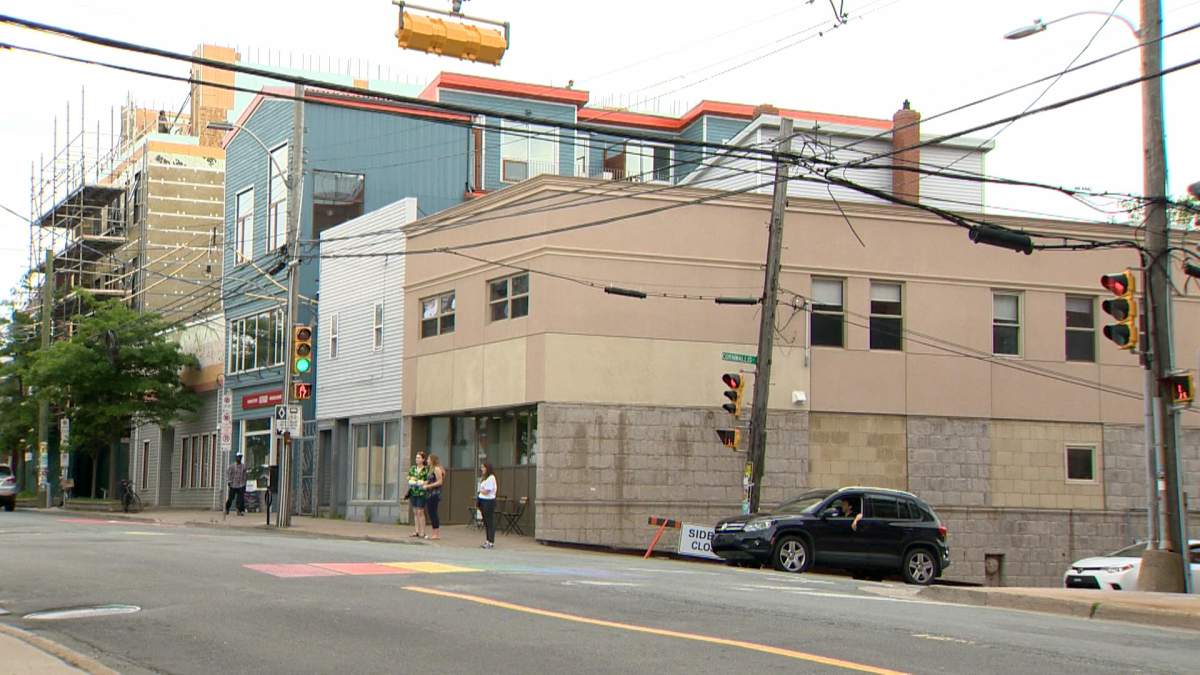The front steps of an abandoned school, the bushes behind a church – these are just some of the places that peer navigators pick up used needles and other forms of drug equipment from on a daily basis.

“So always be careful.”
According to data collected by the navigators, thousands of syringes and other used drug supplies have been picked up from Halifax’s north end community since the program began in 2017.
Now, another harm reduction measure is being added to the community — Atlantic Canada’s first government-approved overdose prevention site.
“By allowing us to legally open this site, it will just normalize this conversation and reduce the stigma that comes along with substance use and reduce barriers for people trying to access services,” said Matthew Bonn, president of HaliFIX Overdose Prevention Society.
“If they want to talk about treatment, or opioid agonist treatment, they can do it with us in a safe, hygienic, supervised setting and we can create that dialogue with the substance user.”
The federal government has granted the society a one-year exemption to operate an Urgent Public Health Need Site out of the basement of Direction 180 on Gottingen Street.
The site already houses an established methadone clinic and Bonn says because of that and other surrounding healthcare services; the location made sense.

Get weekly health news
“There’s Mainline Needle Exchange, you have Direction 180 which is an opioid agonist treatment, the income assistance building, the North End Community Health Clinic. This is a ‘hot spot’ and we have connected services that we can refer people who are using at the site to,” Bonn said.
Community concerns have been raised over whether or not the site will negatively impact the area.
The North End Business Association wants an independent working group to be formed to monitor any potential impacts.
“We need to set up a task force to be able to be responsive to any issues. Whether that be policing issues, social issues, issues with the local business community, or the local residential community,” said Patricia Cuttell Busby, the director of the North End Business Association.
“Right now, that doesn’t exist.”
Cuttell Busby points to January report out of Calgary where increased police resources have been requested to address higher rates of crime in an area surrounding a safe consumption site.
“We need to be proactive, we need to take the lessons learned from other communities and learn how to apply that here,” she said.
READ MORE: Debate over supervised consumption sites ramps up across Alberta
One north end business owner says he is hopeful that Halifax’s site will help decrease the amount of public overdoses in the community — a reality he and his staff have experienced.
Brook says he would rather substance use be monitored in an environment with professionals trained to respond to an overdose, rather than in businesses and outdoor spaces in the neighbourhood.
“I think the use is there, I just think that it’s hidden use that people don’t see,” Brook said. “So, I just think it’s an opportunity for people to get the help that they need, and hopefully in the long run it reduces the amount of opioid use on the streets.”
WATCH: B.C. mother shares story of daughter’s overdose to advocate for safe injection site

Cuttell Busby says concerns over the location of the site continue to be an issue for some members of the community and that she isn’t convinced it’s the best place for the service, given the close proximity to other neighbourhood resources.
“The site right now is co-located with the methadone program and it’s right on a busy, commercial, main street. Right next to New Horizons Baptist Church, on the same block of several facilities that work with children, daycare’s, the YMCA, Delmore Buddy Institute right across the street. So, I think when you look at it in terms of a fit, from a land use planning perspective, you look at conflicts between uses, it’s like is this the right location to have this service?” she said.
Bonn says the location was selected due to the proximity of existing healthcare services that address harm reduction needs.
“There’s Mainline Needle Exchange, you have Direction 180 which is opioid agonist treatment, the income assistance building, the North End Community Health Clinic, you know this is a ‘hot spot’ and we have connected services that we can refer people who are using at the site to,” he said.
The site has been granted a one-year exemption to operate and Bonn says the goal is to have it operational by the end of summer.

_848x480_1572427843877.jpg?w=1040&quality=70&strip=all)








Comments
Want to discuss? Please read our Commenting Policy first.